We tend to think of Duke Ellington and his orchestra as the epitome of cool, sophisticated jazz. “Mood Indigo.” “Caravan.” “Black And Tan Fantasy.” “Sophisticated Lady.”
But Duke and the guys also could get down and party, especially when the festivities were organized by his lead trumpeter, Cootie Williams.
Williams, a Mobile, Alabama, native, was just 18 when he joined Ellington’s orchestra in 1929, rising to prominence when the group played in New York’s famed Cotton Club.
Despite his youth, Williams reached Ellington’s aggregation with some pretty heady credentials. He already had played professionally for four years. He started with saxophonist Lester Young in The Young Family Band, working out of New Orleans and playing the black vaudeville and carnival circuits in the region.
A year before joining Duke, Williams made his first recordings in 1928 with legendary pianist James P. Johnson in New York, where he also worked briefly in the bands of Chick Webb and Fletcher Henderson.
The Ellington Years
But it was his 11 years with The Duke Ellington Orchestra that made Cootie Williams internationally famous among jazz lovers.
At first, Cootie's role in the band required him to play the so-called “jungle effects,” in the manner of Ellington's earlier trumpeter Bubber Miley and trombonist Joe “Tricky Sam” Nanton. However, Williams’ rich open horn sound and his distinctive plunger-muted playing quickly became an important part of the bigger palette with which Ellington worked.
By the time of his last year with the band, 1940, Cootie was one of the most distinctive musicians in a group of highly individualistic players.
Duke wrote “Concerto for Cootie,'' which became — after Bob (“Don’t Get Around Much Anymore”) Russell added lyrics — “Do Nothing ’til You Hear from Me.”
Williams was also featured on numerous other major Ellington works, ranging from “Echoes of Harlem” and “Harlem Air Shaft” to the religious piece ''The Shepherd Who Watches Over the Night Flock.”
Sing It, Cootie!
Beyond being a celebrated trumpeter, Cootie Williams also had mad skills as a vocalist and band leader in his own right. This he began to demonstrate in the late 1930s when he routinely headed up one of the small groups drawn from the Ellington ranks.
“Cootie Williams and His Rug Cutters” — featuring reed men Barney Bigard, Johnny Hodges and Harry Carney — recorded more than a dozen tunes between 1937 and 1940.
Notable among these releases was Williams’ performance of Dave Heywood’s novelty composition “Ain’t the Gravy Good” in 1938. The song tells a sad story of a meal in which all the dishes in the main course go badly awry — “Your biscuits ain't hot, your cobbler ain't sweet” — but, lord, ain't the gravy good? Saucy!
Our Take on the Tune
Twenty years ago this summer, we were in the midst of planning our third studio album, I'd Rather Be Flooded, when our friend and producer, the late George Walker, showed up with that exact Cootie Williams recording.
George thought the tune would be a good fit for us, and we immediately agreed. In fact, we fell in love with it and worked it up in time for the recording session.
Ever since, whenever this song comes to mind — as it did at a recent Flood rehearsal — our thoughts race back to our good times with you, George. We miss you, buddy.
These days that entire 2003 album is online and can be listened to for free on our Radio Floodango music streaming service. Click here to check it out.
And for more back stories on the songs we sing and play, check out the “Song Stories” section of Flood Watch by clicking here.




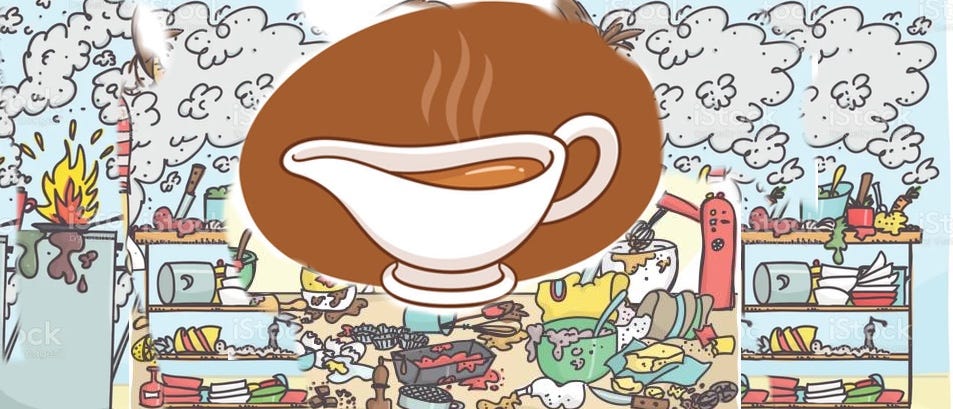


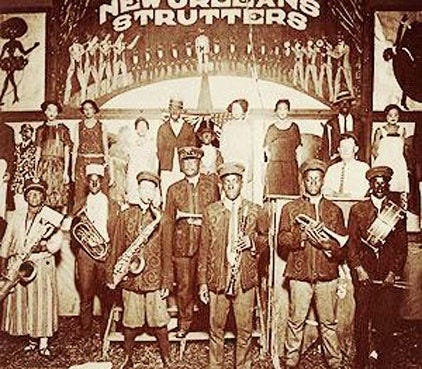
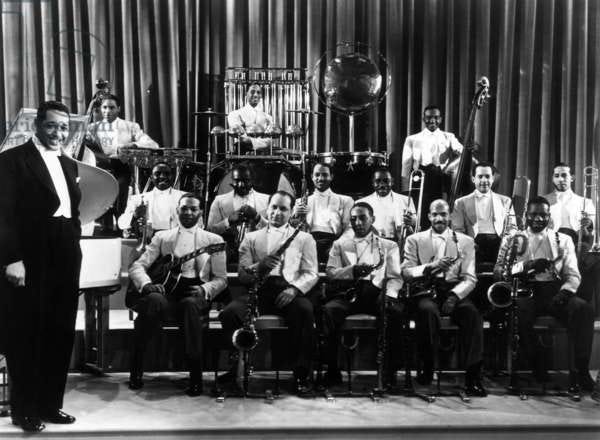
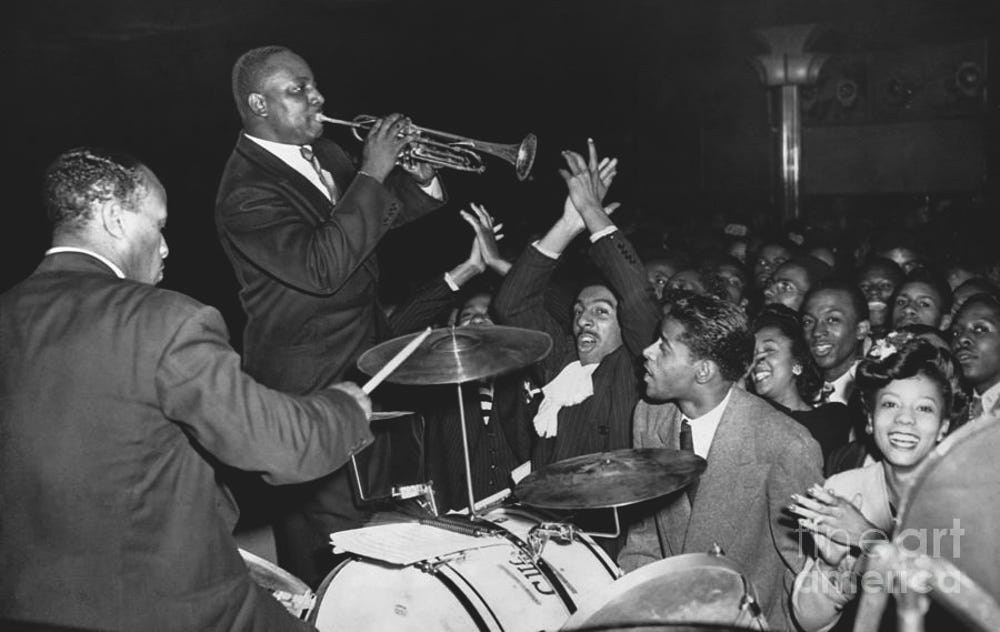
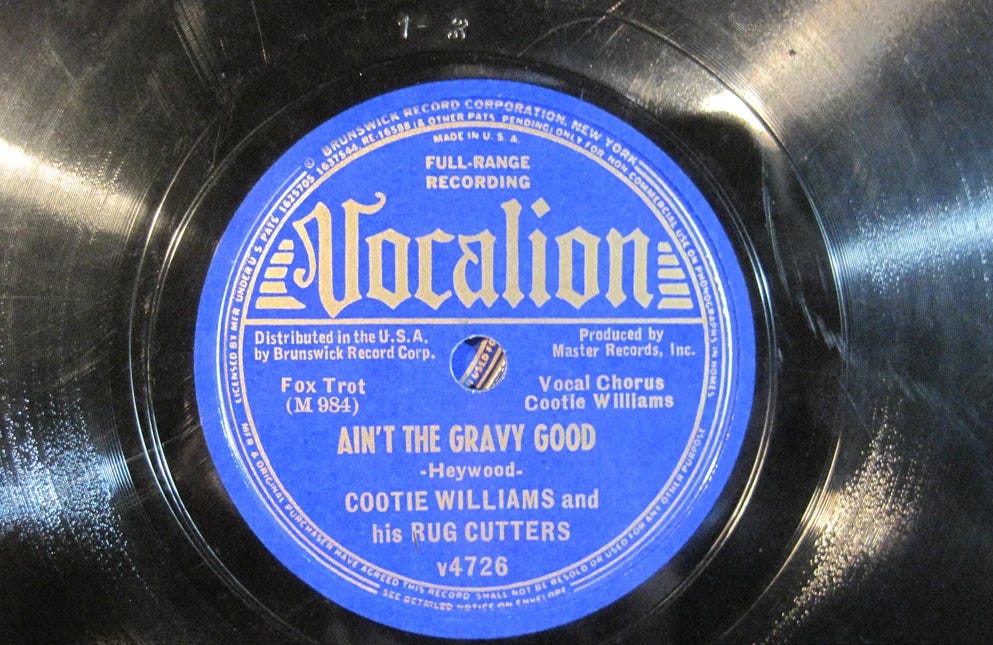
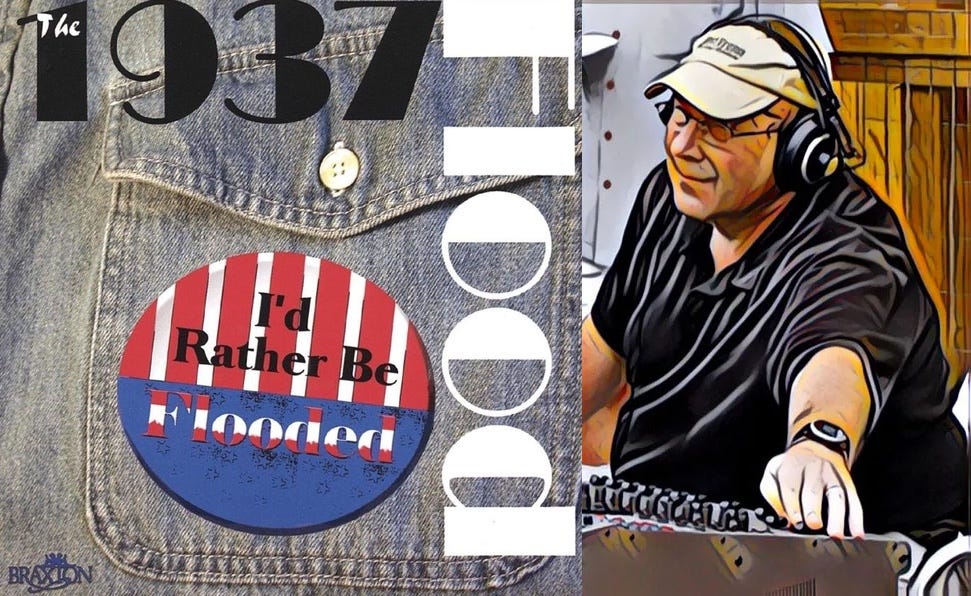
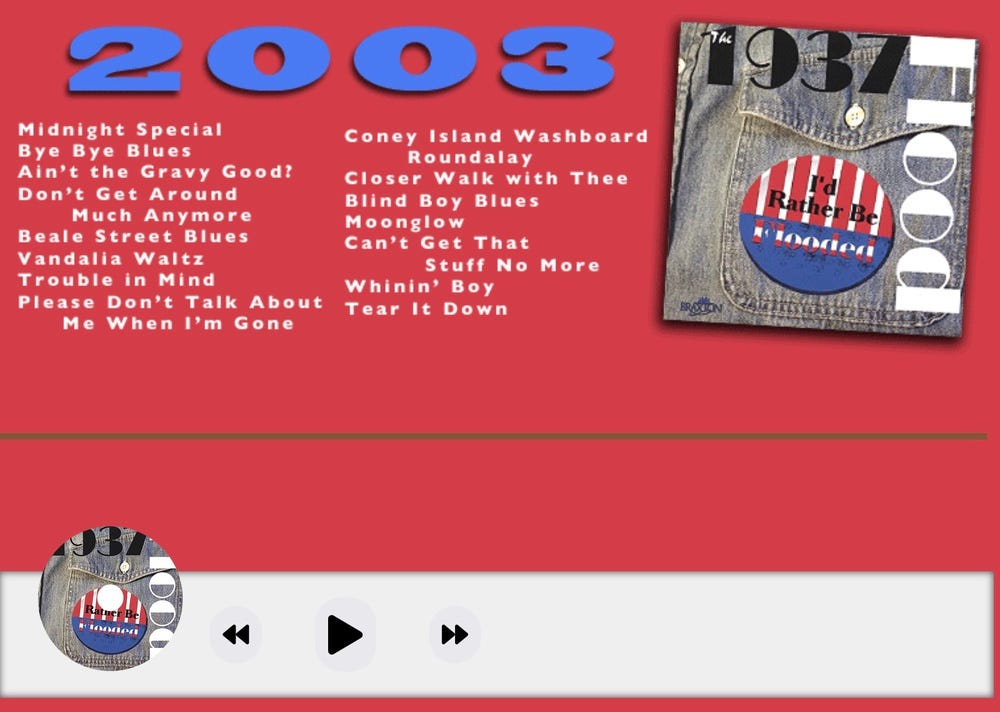






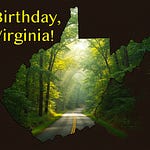


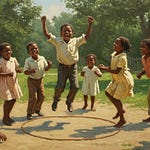
Share this post